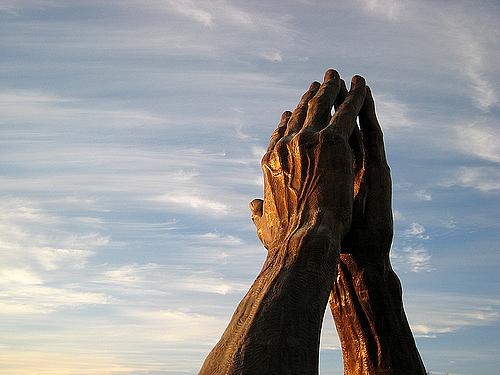Does embracing religion make dying easier?

I’m not a religious person. But lately, having absorbed that I have Stage 4 lung cancer, I’ve wondered if it might make it easier to contemplate death if I were. Wouldn’t faith make leaving this Earth less complicated for me? Would I be comforted if I thought there was a God waiting to welcome me in Heaven with Belgian chocolates?
Maybe not—according to some of the latest research. A study of more than 300 patients suffering advanced cancer found that people who received spiritual support from religious communities tended to want aggressive end-of-life care.
The research, published May 6 in the Journal of the American Medical Association, found that patients who wanted more aggressive care were more likely to die in a hospital Intensive Care Unit (ICU), and to get cardiopulmonary resuscitation or a ventilator before they died, than were people with no support from religion groups. The more devout patients in the study were the more likely to die in the ICU.
Religious patients also were less likely to receive hospice care, which is known to reduce stress associated with desperate end-of-life measures and improve quality of life for terminally ill patients.
The study, by Dr. Tracy Balboni, a radiation oncologist at the Dana-Farber Cancer Institute in Boston, also showed an intriguing counterweight: Religious medical teams. Among patients with strong religious ties, those who received spiritual support from their medical team had a higher rate of hospice use, fewer aggressive treatments, and fewer ICU deaths.
The findings surprised Dr. Balboni. “We can only hypothesize why, when religious communities were involved, patients tended to get more aggressive care,” she says in a telephone interview. “Perhaps they were saying things like, ‘continue to fight,’ or just hoping for a miracle when the medical reality is obvious and the patient is going to die soon.”
A limiting factor of the study was its smallish size — it included just 343 patients — and the researchers did not find out the specifics of what was said to patients by their religious community during counseling.
In past years, Dr. Balboni says, religious communities often played an important role in the deaths of members, and they tended to know what was actually happening medically. But there has been a societal shift over the years.
“Now, with medical care being more technical and (taking place) in hospitals, religious communities are divorced from the realities of medicine,” she says.
A subsequent study, currently in progress, is examining the ways in which elements of spiritual support impact how terminally ill patients and their families make end-of-life care decisions.
Dr. Balboni says a patient’s religion offers tremendous solace as life ebbs. “We very much embrace the religious community. It plays a wonderful role for patients at the end of life. It’s very important to some patients and families, and we see this as an opportunity for better collaboration between religious and medical groups,” she says.
For the time being, I think I’ll just keep talking to my doctors, plan on hospice care as necessary, and secretly hope for a miracle.
This article has been reposted with permission from the Thompson Reuters blog "Cancer In Context."
Image by C Jill Reed via Flickr

